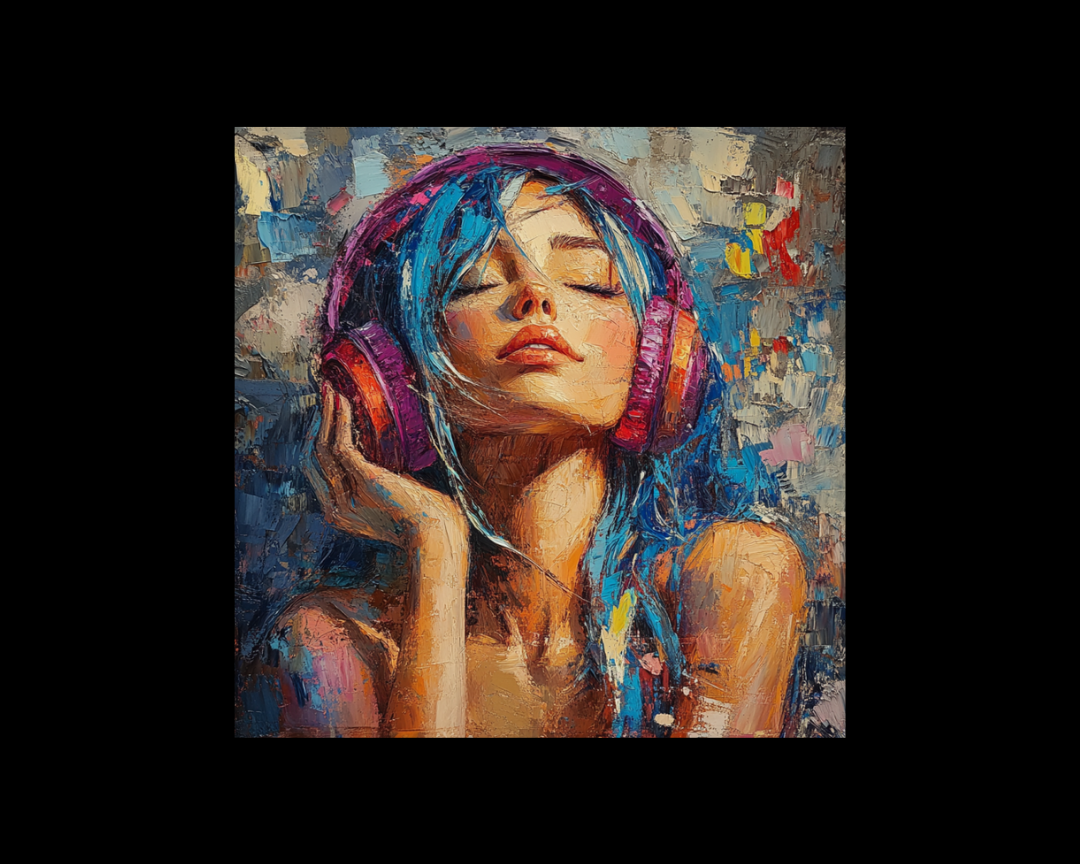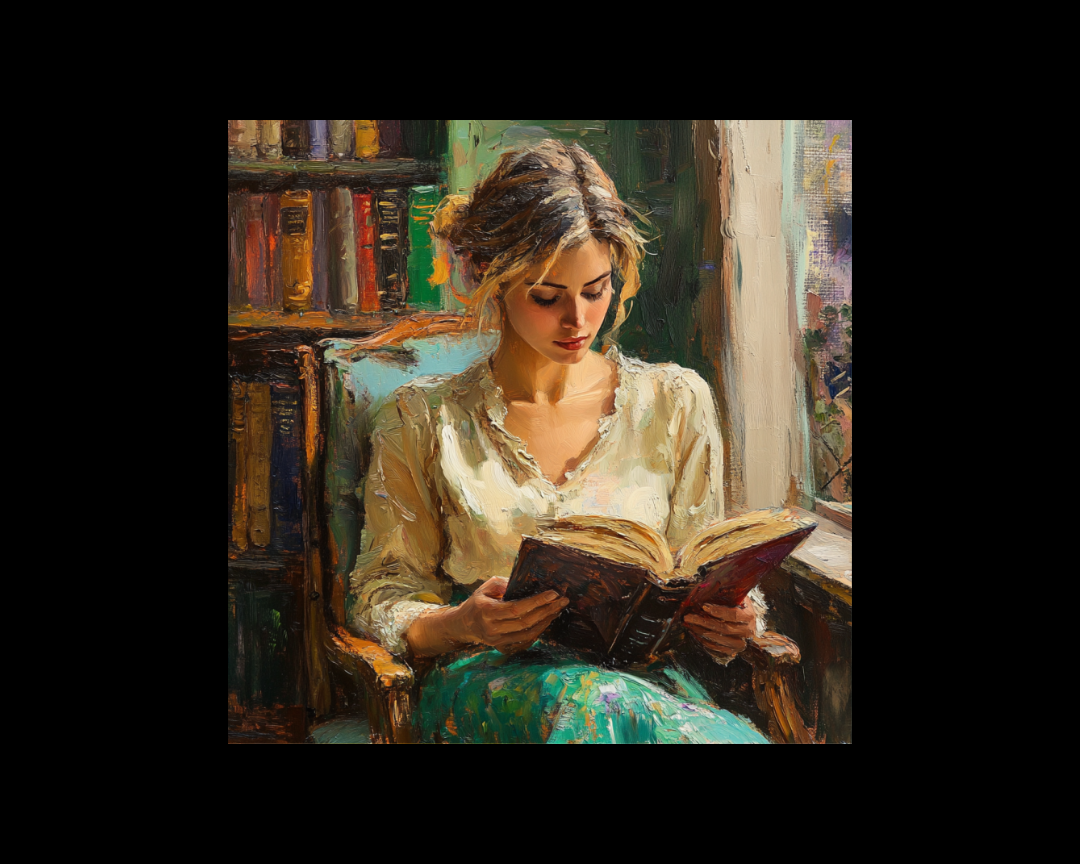Top 10 Writing Strategies for Fiction Writers
Writing fiction can be particularly challenging, as it involves not just putting words on paper but crafting a story that captivates readers from...
6 min read
 Writing Team
:
May 8, 2025 2:29:24 PM
Writing Team
:
May 8, 2025 2:29:24 PM

In the quietude of a morning, before the world has fully awakened, a novelist sits at her desk. Her fingers hover over the keyboard. She takes a deep breath, presses play, and as the first notes drift through her headphones, the words begin to flow. Like Proust's madeleine unlocking memory, music unlocks narrative—a phenomenon as old as storytelling itself.
The relationship between music and writing resembles that of lovers who bring out the best in each other while occasionally driving each other mad. Some writers require monastic silence; others thrive in the cacophony of a café. And then there are those of us who curate our literary journeys through carefully crafted playlists—sonic landscapes that transport us to the worlds we're trying to create.
The connection between music and writing performance isn't just anecdotal—it's backed by neuroscience. According to a 2023 study published in Frontiers in Psychology, background music can significantly enhance creative writing performance, particularly when the music matches the emotional tone of the writing task.
Researchers found that participants writing while listening to music exhibited 28% higher scores on measures of linguistic creativity compared to those writing in silence. More surprisingly, they discovered that the brain's default mode network—associated with imagination and creative thinking—showed increased connectivity when participants listened to music that aligned with their writing goals.
"Music provides a consistent auditory environment that can help maintain focus by blocking out unpredictable ambient noises," explains cognitive neuroscientist Dr. Emily Foster. "Additionally, familiar music requires minimal cognitive processing, allowing writers to direct their attention to the creative process while still benefiting from the emotional stimulation that music provides."
The impact varies by genre and personal preference. While classical music is often cited as ideal for focus, individual associations with different musical styles can dramatically alter their effectiveness. What matters most is finding music that serves your specific creative process rather than interfering with it.
As we explored in our article on brain pickings, the creative mind requires different forms of stimulation at different times. The same applies to writing music. Here are the main categories that writers gravitate toward:
Instrumental music—whether classical, post-rock, or ambient—eliminates the potential distraction of lyrics while still providing emotional cues. Film scores work particularly well, as they're designed to enhance narrative without overwhelming it.
Daniel Levitin, neuroscientist and author of "This Is Your Brain on Music," explains that "music without lyrics engages different neural pathways than music with words, making it less likely to compete with the language centers in the brain that you're using for writing."
Many writers maintain a trusted playlist of songs they know so well that the music becomes almost subliminal. When a song is deeply familiar, it requires less active processing, allowing it to fade into the background while still providing comfort and stimulation.
Perhaps the most sophisticated approach is selecting music that matches the emotional tone of what you're writing. Writing a melancholy scene? Reach for Leonard Cohen. Crafting an action sequence? Queue up something with driving percussion.
For those who find music distracting but can't work in complete silence, white noise or nature sounds provide a constant, non-melodic auditory backdrop. Apps like Brain.fm and Noisli have gained popularity among writers who need sound without the emotional stimulation of music.
Different writing genres often call for different musical accompaniments. We reached out to several professional writers to learn about their preferences:
Thriller author Tess Gerritsen relies heavily on film scores: "I listen to composers like Hans Zimmer and Thomas Newman because they evoke tension without competing with the language centers in my brain."
Fantasy novelist N.K. Jemisin creates custom playlists for each novel: "For 'The Fifth Season,' I listened to a lot of apocalyptic post-rock—Godspeed You! Black Emperor, Explosions in the Sky. The sense of impending doom in that music was perfect for what I was trying to create."
Romance writer Christina Lauren (the pen name for writing duo Christina Hobbs and Lauren Billings) gravitates toward indie folk: "There's something about the intimacy of artists like Bon Iver and The Civil Wars that helps us access emotional vulnerability in our characters."
These approaches align with what we discussed in our article about different tones in writing—the external stimuli we choose can significantly influence the voice and atmosphere we create on the page.
Based on our research and personal experience, we've compiled what we consider the ultimate writing playlist. These selections work across various genres and writing moods, providing a versatile soundtrack for your creative endeavors:
According to a survey of 500 professional writers conducted by Writer's Digest, nearly 67% report having a dedicated playlist or album they return to repeatedly when writing. The most frequently mentioned artists include Ludovico Einaudi, Brian Eno, and film composer Thomas Newman.
As we've noted in our article about how to speed write, establishing optimal writing conditions—including your audio environment—can dramatically improve productivity. Here's how to build the perfect writing playlist:
Different writing tasks may require different types of music. Ask yourself:
Try writing to different types of music for set periods (say, 25-minute sessions) and immediately note how productive you felt. Over time, patterns will emerge about what works best for you.
Look for music with:
If you find lyrics distracting, consider:
Create separate playlists for:
Spotify and other streaming platforms have made this process infinitely easier than in the days of physical media. You can even find pre-made "writing music" playlists curated by other authors and enthusiasts.
While music enhances writing for many, it's not universal. According to the same Writer's Digest survey mentioned earlier, approximately 22% of professional writers report that they work exclusively in silence.
Music can become counterproductive when:
As we've discussed in our article on freewriting, sometimes the best creative environment is one with minimal distractions. If music becomes a distraction rather than an aid, don't hesitate to embrace silence.
While music dominates the discussion of writing soundtracks, other audio options can be equally effective:
The website Coffitivity recreates the ambient sounds of a café, which research suggests may be ideal for creative thinking. A study from the University of Chicago found that moderate ambient noise (around 70 decibels—the level of a busy café) enhances performance on creative tasks.
These specially engineered sounds claim to induce specific brainwave states. While the scientific evidence remains mixed, many writers report enhanced focus when listening to beats designed for concentration, typically in the alpha (8-13 Hz) or beta (14-30 Hz) range.
Autonomous Sensory Meridian Response (ASMR) content—featuring soft, repetitive sounds like whispers, tapping, or page-turning—has gained popularity among some writers who find it deeply relaxing and conducive to creative flow.
Ultimately, the relationship between music and writing is deeply personal. What works for one writer may be disastrous for another. The goal isn't to find the "correct" writing soundtrack but to discover what helps you access your creative potential most effectively.
As novelist Haruki Murakami, known for his rigorous writing routine accompanied by jazz music, puts it: "I don't know how the music I listen to affects my writing, but it does. The rhythm of the music gets inside me and becomes the rhythm of my writing."
The ancient Greeks believed that the Muses—goddesses of literature, science, and the arts—spoke directly to artists, providing divine inspiration. Perhaps today's writers have simply replaced these mythical muses with Spotify playlists and noise-canceling headphones. The quest remains the same: to find that external stimulus that unlocks our internal worlds.
Whether you prefer the structured complexity of Bach, the atmospheric landscapes of ambient music, or the simple sound of rainfall against a window, what matters is finding the audio environment that helps your words flow most freely.
Music, at its best, becomes a portal—a way to bypass our analytical minds and access the deeper currents of creativity that power our best writing. It creates a cocoon of sound that both shelters us from distraction and stimulates the emotional centers necessary for authentic expression.
So the next time you sit down to write, consider not just what you'll write, but what you'll hear as you write it. Your perfect writing soundtrack might be just a play button away.
Looking to enhance your writing with professionally crafted content that sings to your audience? At Hire a Writer, we understand the rhythm of great prose and how to create content that resonates. Contact us today to discover how our writing services can amplify your voice and engage your readers on a deeper level.
-1.png)
Writing fiction can be particularly challenging, as it involves not just putting words on paper but crafting a story that captivates readers from...

There's a delicious paradox in devouring nonfiction books about crafting fiction. Like a chef studying cookbooks to create meals that taste nothing...
.png)
In our current era, speed is often celebrated above all else. The internet's emergence has accelerated our lives, turning processes that once took...